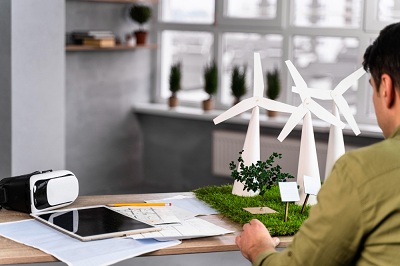In today’s rapidly evolving world, the need for energy-efficient appliances has never been more critical. As environmental concerns mount and energy costs rise, consumers are increasingly turning to appliances that not only reduce their carbon footprint but also lead to substantial savings on utility bills. This article delves deep into the importance of energy-efficient appliances, how they work, and the myriad benefits they bring to both the environment and your wallet.
Why Energy-Efficient Appliances Matter
Reducing Carbon Footprint
Energy-efficient appliances play a significant role in reducing greenhouse gas emissions. Traditional appliances consume large amounts of electricity, often generated from fossil fuels, which release carbon dioxide (CO2) and other harmful pollutants into the atmosphere. By switching to energy-efficient alternatives, we can significantly reduce the amount of CO2 emissions, helping to combat climate change.
Lowering Energy Bills
One of the most immediate benefits of using energy-efficient appliances is the reduction in energy consumption, which directly translates to lower utility bills. Appliances like refrigerators, washing machines, and air conditioners that are designed with energy efficiency in mind use advanced technologies to perform the same tasks as their traditional counterparts but with significantly less electricity. Over time, these savings can add up, making the initial investment in energy-efficient appliances well worth it.
How Energy-Efficient Appliances Work
Innovative Technologies
Energy-efficient appliances are equipped with cutting-edge technologies designed to minimize energy consumption without compromising performance. For instance, inverter technology in air conditioners allows the compressor to operate at varying speeds, depending on the cooling demand, rather than running at full power constantly. This not only reduces energy consumption but also enhances the longevity of the appliance.
Smart Sensors and Controls
Many energy-efficient appliances come with smart sensors and controls that optimize energy use. For example, modern washing machines adjust water levels and cycle lengths based on the load size and fabric type, ensuring that no excess water or electricity is wasted. Similarly, smart thermostats in heating and cooling systems learn your preferences over time and adjust temperatures accordingly, ensuring comfort while reducing energy use.
Energy Star Certification
The Energy Star certification is a trusted mark of energy efficiency. Appliances that carry this label have been independently tested and verified to meet stringent energy efficiency standards set by the U.S. Environmental Protection Agency (EPA). When shopping for energy-efficient appliances, look for the Energy Star label as a guarantee of reduced energy consumption and environmental impact.
Benefits of Energy-Efficient Appliances
Environmental Benefits
The environmental benefits of energy-efficient appliances are manifold. By consuming less energy, these appliances help to reduce the demand for electricity, leading to fewer power plant emissions. This not only helps in reducing air and water pollution but also conserves natural resources like coal, oil, and natural gas, which are often used to generate electricity.
Moreover, the reduction in greenhouse gas emissions contributes to the global fight against climate change, making energy-efficient appliances a key component in sustainable living.
Economic Benefits
Beyond the environmental impact, energy-efficient appliances offer significant economic advantages. While the initial cost of these appliances may be higher than traditional models, the long-term savings on energy bills more than make up for the difference. Additionally, many governments and utility companies offer rebates and incentives for purchasing energy-efficient appliances, further reducing the overall cost.
Improved Performance and Longevity
Energy-efficient appliances are not just about saving money and the environment—they also offer superior performance and durability. These appliances are often built with higher-quality components and advanced technologies, which means they tend to last longer and require less maintenance than traditional models. This leads to fewer repairs and replacements, offering peace of mind to consumers.
Choosing the Right Energy-Efficient Appliances
Consider Your Needs
When selecting energy-efficient appliances, it’s essential to consider your specific needs and household requirements. For instance, if you have a large family, investing in an energy-efficient refrigerator with a higher capacity might be more beneficial than opting for a smaller model. Similarly, if you live in an area with harsh winters, a high-efficiency furnace or heat pump could provide substantial energy savings.
Compare Energy Ratings
Energy ratings provide valuable insights into an appliance’s energy consumption. The EnergyGuide label, typically found on appliances, displays the estimated annual energy use and operating cost, making it easier to compare different models. By choosing appliances with lower energy consumption, you can ensure that your household remains energy-efficient.
Look for Additional Features
In addition to energy efficiency, consider other features that enhance convenience and performance. For example, smart home integration allows you to control and monitor your appliances remotely, ensuring that they operate optimally even when you’re not at home. Features like delay start, eco modes, and automatic shutoff can further enhance energy savings.
Conclusion
Energy-efficient appliances are a wise investment for anyone looking to save money on utility bills while reducing their environmental impact. By choosing appliances that use less energy, you not only contribute to a healthier planet but also enjoy the benefits of lower operating costs and improved appliance performance. Whether you’re replacing an old appliance or outfitting a new home, prioritizing energy efficiency is a step towards a more sustainable future.




